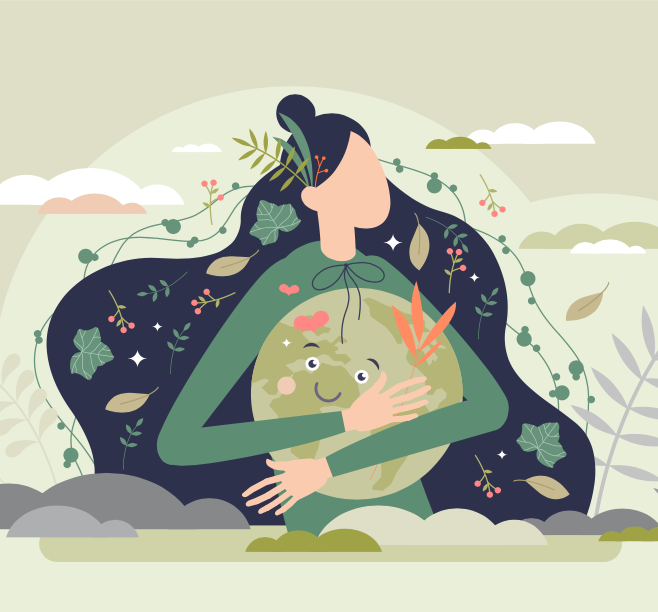In our Autumn 2021 issue, our sustainability correspondent Davie Philip explored how Buddhist teachings can help us find our way towards planetary healing. Read his reflections below.
Four Noble Truths
A Buddhist Response to the Ecological Crisis
by Davie Philip
“We have reached a critical juncture in our biological and social evolution. There has never been a more important time in history to bring the resources of Buddhism to bear on behalf of all living beings.”
A Buddhist Declaration on Climate Change
With the unprecedented heatwaves, droughts, floods and forest fires we have witnessed this summer, the hard truth that human activity is triggering environmental breakdown on a planetary scale is indisputable. The health of ecosystems on which we and all other species depend are now deteriorating at an alarming rate.
Might the ancient wisdom of the Buddha give us some insights on how to identify the root causes of this crisis and give us a framework to respond?
The Buddhist Declaration on Climate Change – which was presented to world leaders at the Paris climate talks in 2015 – highlights that: “Our ecological emergency is a larger version of the perennial human predicament. Both as individuals and as a species, we suffer from a sense of self that feels disconnected not only from other people but from the Earth itself.”
In the declaration, the Buddhist leaders go on to say that their concern is founded on Buddha’s realisation of the interconnectedness between all beings, that we are all a part of the greater whole.
“Understanding this interconnected causality and the consequences of our actions are critical steps in reducing our environmental impact. Cultivating the insight of interbeing and compassion, we will be able to act out of love, not fear, to protect our planet.”
This awareness of inter-being stimulates a deep connection with nature and helps us foster a sense of identity or oneness with it. We are nature protecting itself.
Thich Nhat Hanh has said, “We are here to awaken from the illusion of our separateness. We need to wake up and realise that the Earth is our mother, as well as our home – and in this case, the umbilical cord binding us to her cannot be severed. When the Earth becomes sick we become sick, because we are part of her.”
As the challenges we face ultimately stem from the human mind, and therefore require profound changes within our minds, the declaration suggests that the Four Noble Truths, the principles that contain the essence of the Buddha’s teachings, could provide a framework for diagnosing our current situation and help us in formulating pathways forward.
Buddha’s Four Noble Truths are: Dukkha, the truth of suffering – that we need to face up to the situation we are in and
not deny it; Samudaya, the truth of the end of suffering – that the discomfort of facing up to the deeper cause of the suffering, our separateness, attachment, craving and ignorance, will lead to us doing something about it; Nirodha, the possibility to liberate ourselves from suffering and its causes; and Marga, the Eightfold Path – that freedom is achieved through rightness of belief, resolve, speech, action, livelihood, effort, thought, and meditation.
The Buddhist Four Noble Truths and the wisdom of mindfulness and interdependence can help us to make sense of the deeper causes of our crises, and navigate through this unprecedented era of human and ecological suffering.
Davie Philip is a facilitator and trainer with a focus on community resilience at Cultivate.ie and a network weaver at ECOLISE.eu, the European network for community-led initiatives on climate change and sustainability.


